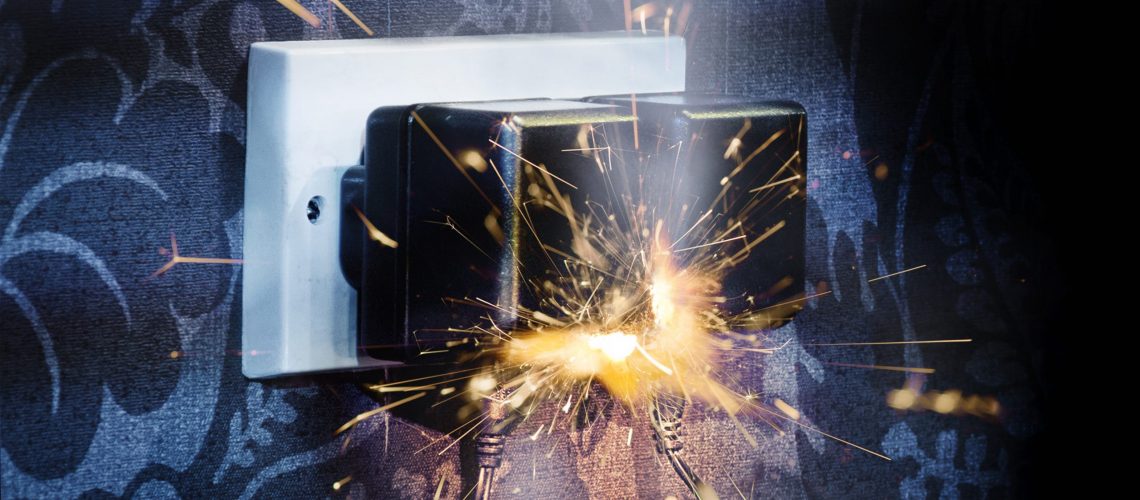
A little prevention can go a long way. You already practice fire safety, but fire prevention is the best way to protect your family – and that starts with ensuring that your electrical systems and appliances are functioning properly and safely. Run through this checklist regularly, since electrical malfunction can happen at any time and for many reasons.
Switches and outlets
Are any switches or outlets warm to the touch?
Warm switches or outlets indicate an unsafe wiring condition.
Are any outlets or switches discolored?
Discoloration indicates dangerous heat buildup at these connections.
Do plugs fit snugly into outlets?
Loose-ftting plugs can cause overheating and fires.
Are your outlets overloaded?
Do not overload one outlet with several high-wattage or heat-producing devices, for example a space heater and coffee maker.
Cords
Are any cords cracked, frayed or damaged?
Damaged cords can expose wires, causing shock or fire hazard.
Are any cords pinched by furniture or windows, or attached to anything with staples or nails?
Pinching and/or stapling cords can damage the insulation, causing shock or fire hazard.
Do you use extension cords on a permanent basis?
Extension cords should only be used temporarily.
Appliances
Are any heat-producing appliances near something flammable or combustible?
Keep heat-producing appliances (toaster, heater, coffee maker, etc.) away from things such as potholders, paper napkins, etc.
Are small appliances plugged in when not in use?
Unplug kitchen countertop and bathroom appliances (toaster, hair dryer, etc.) when not in use.
Is your kitchen exhaust clean?
Keep your kitchen exhaust fan clean and free of grease, lint and other obstructions.
Are your major appliances plugged directly into a wall outlet?
Washers, dryers, refrigerators, stoves, air conditioners, hot water heaters, etc. – should always be plugged directly into a wall outlet. Do not use surge protectors, plug strips or extension cords.
Electric panel
Do you have recurring tripped circuit breakers or blown fuses?
If yes, this could indicate you’re exceeding a safe level of electrical current.
Do you have arc fault circuit interrupters (AFCIs)?
AFCIs provide greater fire protection. Check your circuit breakers for the AFCI label. Ask a licensed electrician about installing AFCIs in your home.


